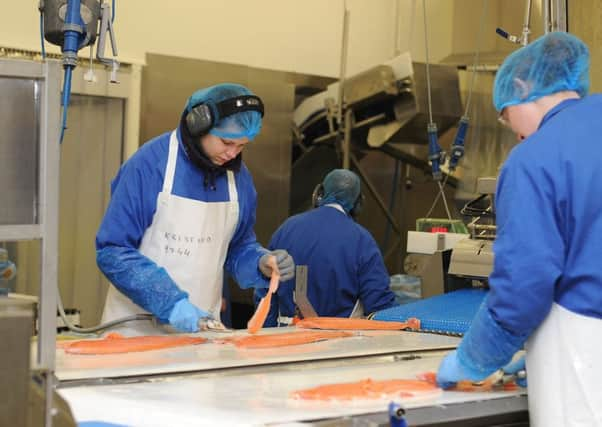Scottish Chambers urges quick deal on EU employees
This article contains affiliate links. We may earn a small commission on items purchased through this article, but that does not affect our editorial judgement.


It comes as Scottish Chambers of Commerce (SCC) chief executive Liz Cameron took a sideswipe at hectic electioneering activity in recent years impacting business alongside a raft of priorities unveiled by the organisation in today’s report.
“Three major elections in three years, coupled with two game-changing referendums, is not exactly the kind of stability that Scotland’s businesses had been hoping for, but this latest election provides a vital opportunity to focus the attention of politicians on the issues that really matter,” Cameron said.
Advertisement
Hide AdAdvertisement
Hide Ad• READ MORE: Hotels chief warns over Brexit threat to workers
Prime Minister Theresa May has called the general election for 8 June, just under a year since the UK voted to quit the European single market, although 62 per cent of the Scottish vote was in favour of Remain.
Cameron said: “Obviously the reason a general election has been called in the first place derives from the outcome of last year’s EU referendum. “While Scotland’s firms are getting on with business as usual, they are clear that they expect the next government to deliver an early deal on the rights of EU citizens working in our economy and, likewise, UK workers based in the EU.
“They are also looking for progress on delivering tariff free access to the EU single market, with a minimum of regulatory barriers.”
The SCC said that it believed “the particular interests of the Scottish economy need to be represented during the Brexit negotiations”, and that it wanted to see the next UK government provide a defined role for Scotland and its businesses in the talks.
Cameron added: “In the midst of debate around Europe and Scotland’s constitutional future, our aspiring politicians must not be allowed to forget that the Scottish economy is underperforming the UK as a whole and that there may be prolonged challenges in terms of rising inflation and threats to levels of consumer demand.
“That is why we believe that our next government must look to reduce taxation in order to ease the cost burden on businesses and provide a boost to consumer demand, for example by temporarily cutting the main rate of VAT (temporarily) and by reducing VAT permanently for our hospitality businesses.”
Advertisement
Hide AdAdvertisement
Hide AdThe SCC’s wish-list includes business rates cuts taking precedence over corporation tax cuts, and developing a new partnership between the Department for International Trade and Scottish business.
The trade body urges that May’s flagged new industrial strategy, widely seen as ushering in a more interventionist approach, benefits the whole of the UK through close collaboration between the UK government and Holyrood.
• Any election manifesto pledges on housing or infrastructure will be “redundant” if there are not enough skilled workers in the construction industry, a new report warns.
The Federation of Master Builders said migrant labour was crucial to the sector as it called on the next government to make sure firms have enough skilled workers after Brexit.